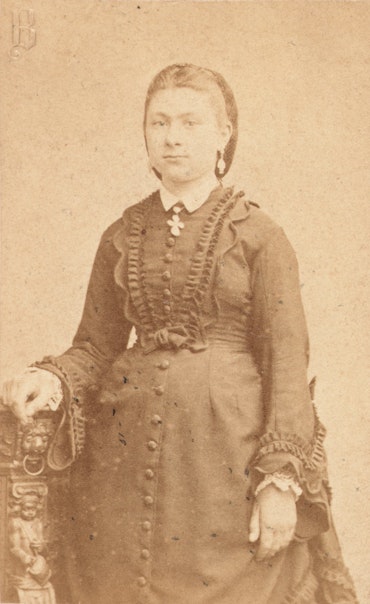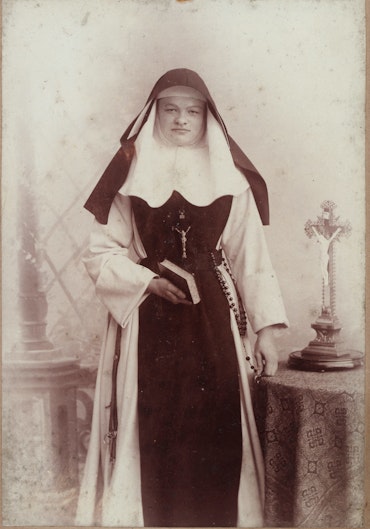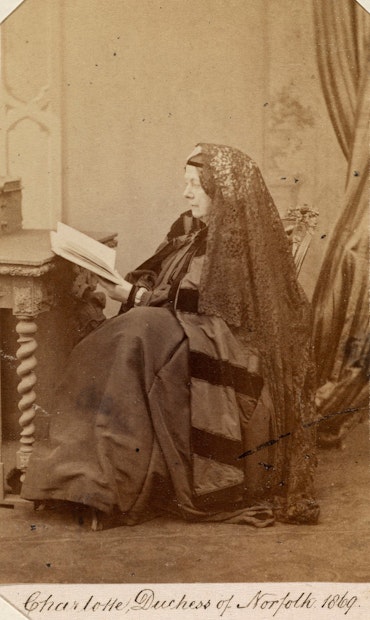
Paper Women
In October 2022 we launched 'Paper Women', a project supported by the Flemish government. The project aims to bring to life the stories of 200 women who corresponded with the Flemish poet Guido Gezelle, from baronesses to factory workers, from confessants to relatives. Alongside our partners and volunteers, we will shed light on these unknown witnesses using digital images, an online letter edition, an exhibition, and an artistic project, providing a unique female perspective on Gezelle, the literary archive, and the era in which the poet lived.

The Project
Digitization and Edition
Gezelle corresponded with baronesses, bourgeois ladies, maids, nuns, businesswomen, factory girls, English women and immigrants, confessants and relatives. Through participation, Paper Women realizes an online letter edition in GezelleBrOn of these fascinating ego documents. This project also includes the digitization of all 2,300 letter fragments that were cut up by Gezelle from the Gezelle Archives.
Improving Gender Representation
Through this project, we aim to address the lack of historical sources pertaining to women. Our efforts help to balance the representation of genders in biographical databases and sources. We are exploring the possibility of collaborating with the biographical database Odis to incorporate the findings from our volunteers. Additionally, we are contributing to Wikipedia's gender gap project by creating individual pages for notable women.
Exhibition and Artistic Project
This project aims to showcase the cultural significance of female heritage to a diverse audience. The exhibition and publication have been made possible by a two-year grant from Flanders, with the invaluable support and collaboration of multiple partners.
 Letter of Fanny George to Gezelle, London, 23.10.1861
Letter of Fanny George to Gezelle, London, 23.10.1861
The Letters
Gezelle's female letter writers came from different layers of society. They wrote not only from Flanders, but also from France, Germany, Ireland and England. A significant number of letters were written by English women, who were either part of the English Colony in Bruges or members of Gezelle's extensive network in the Catholic Anglo-Saxon world. Female letter writers contributed to Gezelle's literary work or sought his advice on personal matters. Their letters constitute an unexplored segment of our cultural heritage, with a distinctive style and theme. Often candid and forthright, these ego documents provide a cross-section of 19th-century society and offer a human perspective on the poet and his work.

Fragmented Letters
Gezelle frequently reused paper by cutting up his letters, which resulted in fragmented pieces scattered throughout the Gezelle Archives. These pieces can be found on the backs of sheets from the 'Word Sack', 50 boxes with 150.000 little sheets of paper on which Gezelle explained Flemish words. The archive is challenging to manage and digitize due to the delicate nature of the fragments and the fact that documents were reused multiple times. The Paper Women Project aims to develop a sustainable solution for digitally revealing all 2,300 fragments from all letter writers, including those written by women.
Main partners
- Guido Gezelle Archives, Bruges Public Library
- The Center for Scholarly Editing and Document Studies of the Royal Academy for Dutch Language
- Prof. dr. Piet Couttenier (Center for Gezelle Study University of Antwerp)
- Volunteers, among others, of the Guido Gezelle Society
Expertisepartners
- Meemoo
- Prof. dr. Yves T’Sjoen Department of Language and Literature, Ghent University
- Prof. dr. Marianne Vanremoortel, Center for Gender Studies, Ghent University
- Writer collective Fixdit
- ODIS npo
- State Archives Kortrijk & Bruges
- City Archives Kortrijk
- KADOC, Documentation and Research Centre on Religion and Society
- Foundation Van Caloen npo
- House of Literature Antwerp















